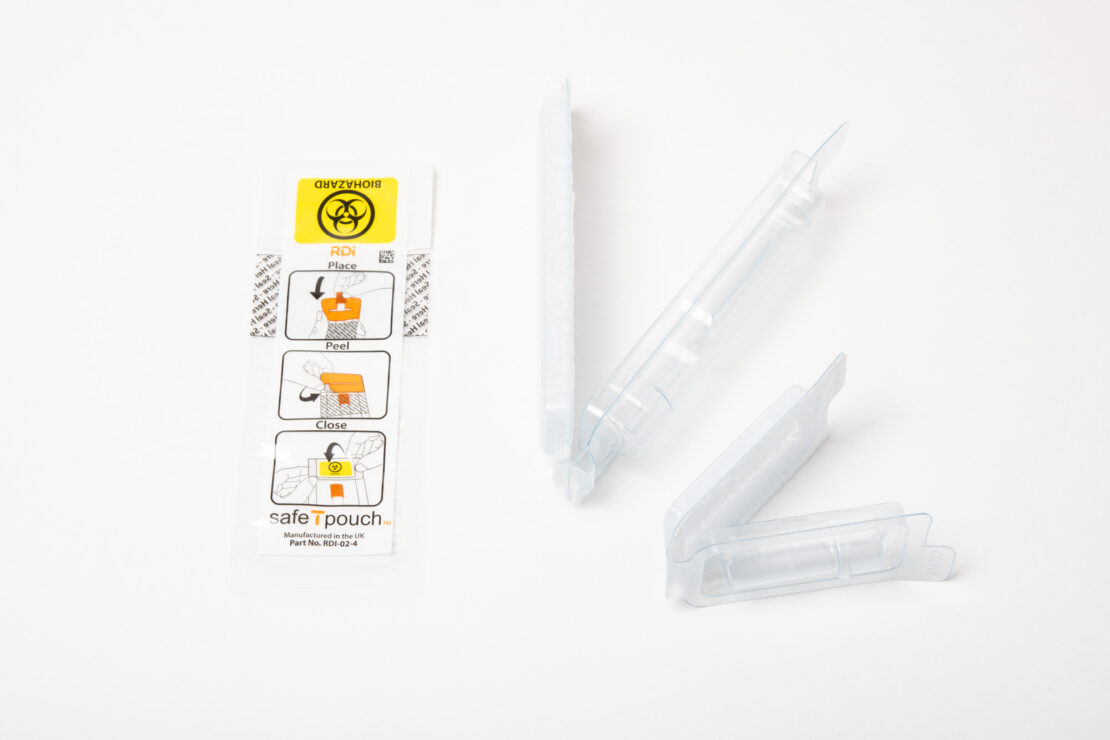by Kate Ebbutt
As part of our environmental plan, we have redesigned our remote testing kits to save 10 tonnes of plastic a year.
Solving the plastic problem
Plastic waste is a significant issue, particularly in healthcare. Almost a quarter of the NHS’s waste in England and Wales is plastic, according to NHS Supply Chain.
With over half of STI tests in England now done remotely, we know that the packaging in our self-sample collect testing kits was contributing to the global plastic waste problem.
Each of our traditional blood and urine sample test kits used 24g of plastic to safely package and protect the sample tubes on the way back to our lab.
This sounds small, but with thousands of kits sent out each week and demand growing, the amount of plastic was growing too. This is also extra weight that has to be transported by vehicles around the country – all contributing to emissions.
At Preventx, we are striving to be more sustainable and environmentally conscious. Good sexual health should never be at the expense of the planet, and we all need to find ways to reduce, reuse and recycle.

We set out on a mission to innovate, so we could keep our sample tubes safe while minimising plastic use.
After exploring the possibilities, we decided to replace the traditional hard moulded plastic packaging with soft plastic transport bags. These not only use much less plastic but are also easy to recycle.
On the left you can see the new bags, compared with with hard plastic casing that has been used traditionally by postal self-sampling services for over a decade.
A combined blood and urine testing kit now uses just 3.2g of fully recyclable plastic.
Making the change
We carried out extensive testing to make sure our new transport bags were easy to use, protected the sample tubes effectively, and mitigated samples leaking.
Once we were confident the bags were robust, it was time to test them in real life.
We wanted to check that service users found returning their samples as simple as possible and that the samples they sent back to our lab were suitable to be tested.
We asked each service user in this trial to fill in a feedback survey as well as running focus groups with service users about the change.
Over the course of a few days, we sent out 2,200 trial kits to both new and returning service users.
The change to our kits were welcomed by both new and returning service users.
They found the new transport bags easier to use when returning their samples and value a more ethical and eco-friendly service.
Our service users told us:
- More than 9 in 10 found the instructions clear
- More than 9 in 10 found the new bags easy to use
- More than 9 in 10 found it easy to package their sample
And around 6 in 10 returning service users said it was easier to return their kit than before.
As a result, the new, more eco-friendly kits launched in February 2024.
Reducing plastic: the numbers
As a result of this innovation, we will be reducing the plastic used in our kit packaging from nearly 13 tonnes each year to less than 2.5 tonnes.
This is a reduction of more than 80% – and means that a colossal 10 tonnes of plastic will be saved each year.
There will also be significant environmental benefits due to a reduction in the weight of our testing kits and a reduction in the cardboard needed to package them.
What service users told us
“The procedure and service is near flawless. Thank you”
“Everything was intuitive and easy to use”
“Your service is exceptional”
“All very simple and efficient. A great service”
About the author:
Kate Ebbutt is the Head of Marketing and Communications for Preventx